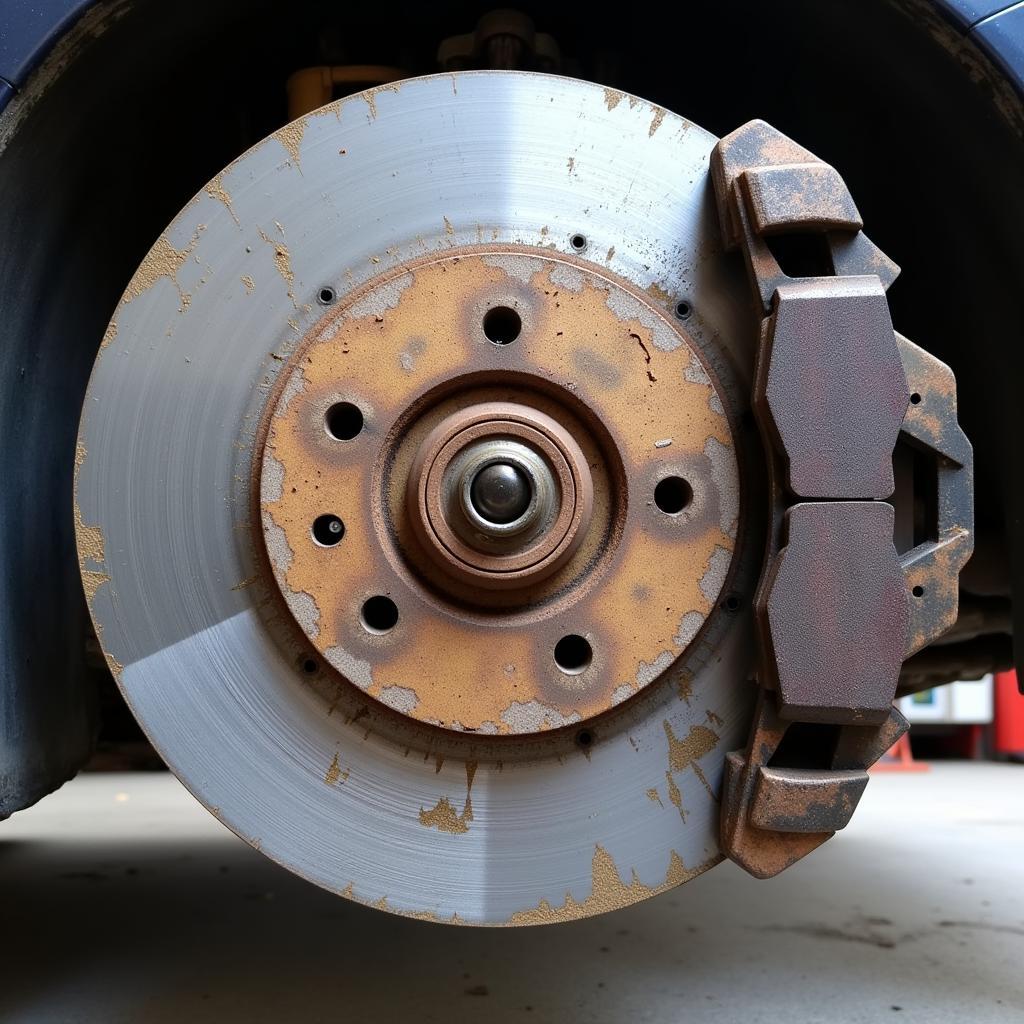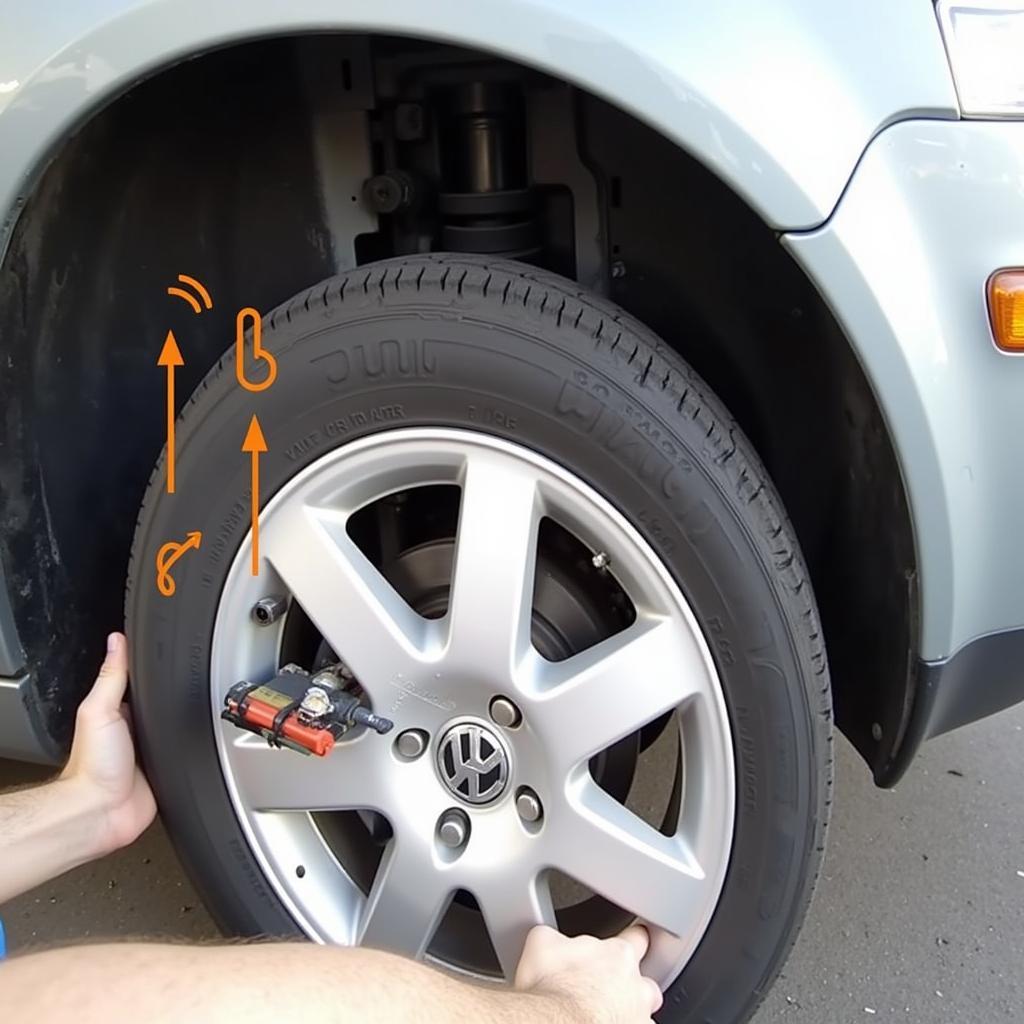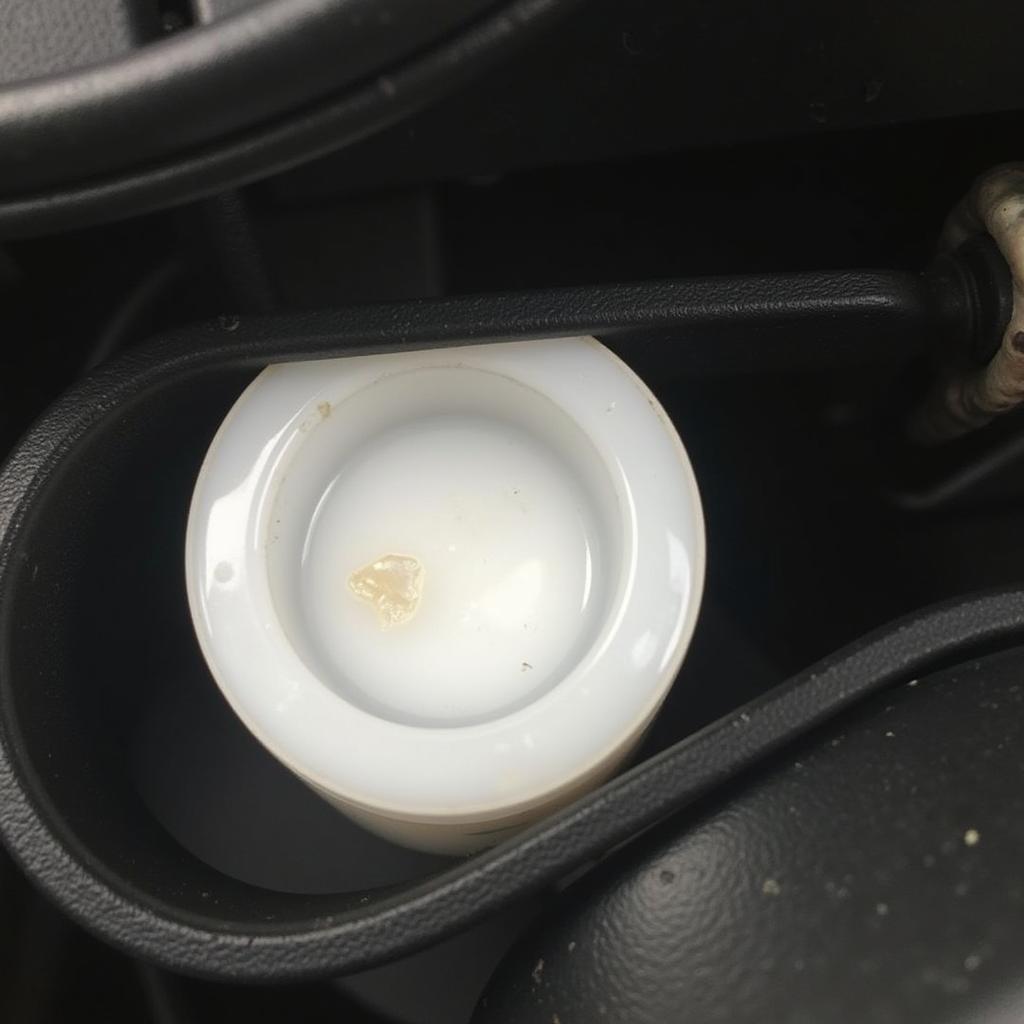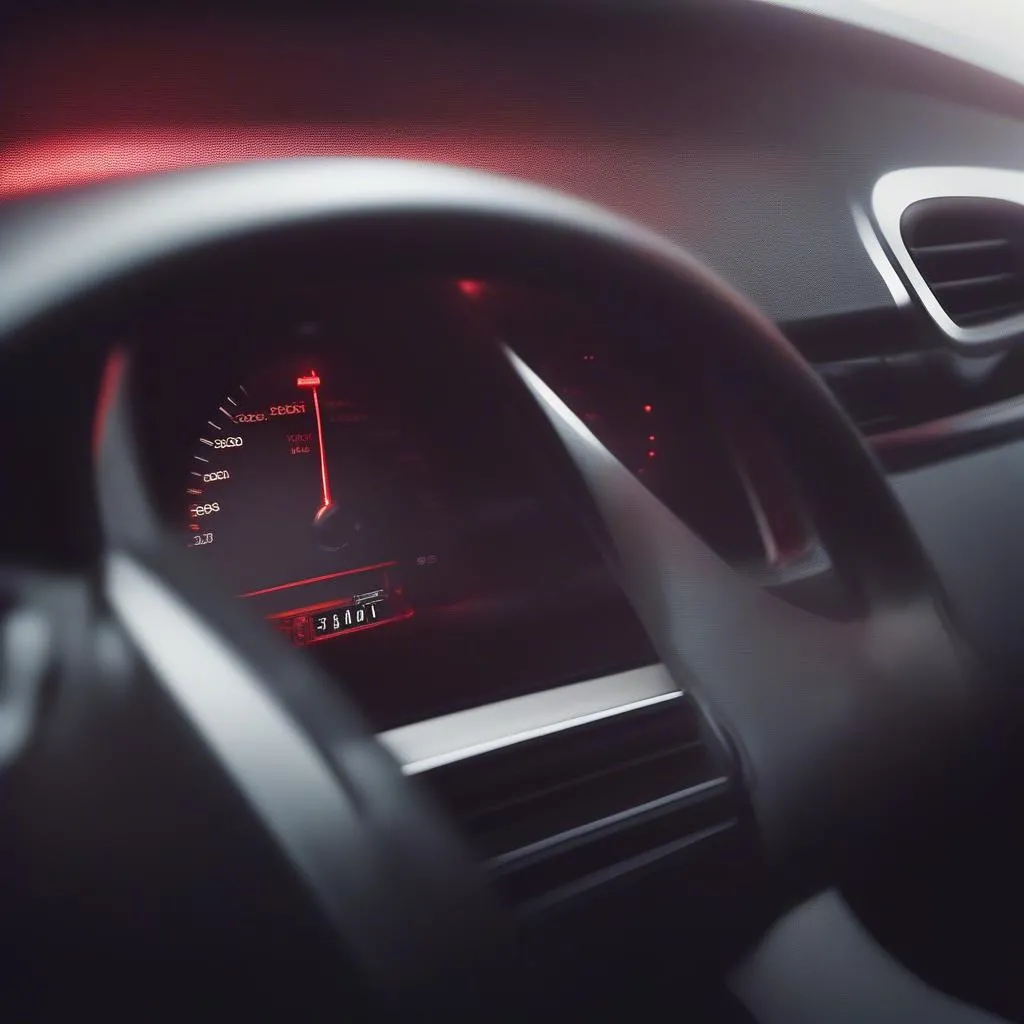A “Brake Fault” warning light illuminating on your 2003 Volkswagen Passat’s dashboard can be a nerve-wracking experience. This warning indicates a potential issue with your braking system, demanding immediate attention to ensure your safety and the safety of others on the road. This article delves into the common causes behind the “2003 Passat Brake Fault Warning” and provides a comprehensive guide to help you diagnose and address this issue effectively.
Understanding the Brake Fault Warning
The brake system in your 2003 Passat is comprised of multiple components working in tandem to provide reliable stopping power. When the car’s onboard computer detects an abnormality within this system, it triggers the “Brake Fault” warning light. This could be due to a range of reasons, from simple issues like worn brake pads to more complex problems with the ABS system.
Common Causes of the 2003 Passat Brake Fault Warning
1. Worn Brake Pads and Rotors
Brake pads are designed to wear down over time. When they reach a certain level of wear, the brake pad wear sensor will trigger the warning light. Ignoring this signal can lead to metal-on-metal contact, damaging your rotors and significantly reducing braking efficiency.
 worn brake pads on a 2003 Passat
worn brake pads on a 2003 Passat
2. Low Brake Fluid Level
Brake fluid is crucial for transmitting hydraulic pressure from the brake pedal to the wheels, enabling your 2003 Passat to stop effectively. A leak in the brake lines or a malfunctioning master cylinder can cause a drop in brake fluid level, triggering the warning light and compromising braking performance.
3. Faulty ABS Sensors
The Anti-lock Braking System (ABS) relies on wheel speed sensors to prevent wheel lockup during braking. If an ABS sensor malfunctions or becomes covered in debris, it can disrupt the ABS system and activate the warning light.
 location of the ABS sensor on a 2003 Volkswagen Passat
location of the ABS sensor on a 2003 Volkswagen Passat
4. Malfunctioning Brake Light Switch
While seemingly unrelated, a faulty brake light switch can also trigger the “Brake Fault” warning. This switch activates your brake lights when you press the pedal and plays a role in communicating braking information to the car’s computer system. A malfunctioning switch can disrupt this communication and activate the warning light.
5. Electrical Issues
Like any modern vehicle, your 2003 Passat relies on intricate wiring and electrical connections for various systems, including the brakes. Loose connections, damaged wiring, or a faulty brake control module can lead to electrical issues that trigger the warning light.
Diagnosing the Brake Fault Warning
Determining the exact cause of the “Brake Fault” warning often requires specialized diagnostic equipment.
“Always prioritize a thorough inspection by a qualified mechanic,” says automotive expert James Miller. “Attempting to diagnose or repair brake issues without proper knowledge can be dangerous.”
why is my brake warning light on
Here are a few basic checks you can perform:
- Visual Inspection: Examine your brake fluid reservoir. If the level is low, there’s likely a leak requiring immediate attention.
- Brake Pad Inspection: If you’re comfortable with basic car maintenance, you can check the thickness of your brake pads. However, it’s best to consult a professional mechanic for confirmation.
Addressing the Brake Fault Warning
Once you’ve identified the potential cause of the “Brake Fault” warning on your 2003 Passat, it’s crucial to take appropriate action:
- Brake Pad and Rotor Replacement: Worn brake pads and rotors necessitate immediate replacement to ensure optimal braking performance and prevent further damage.
- Brake Fluid Top-up or Leak Repair: If you notice a low brake fluid level, carefully top it up with the recommended DOT specification. However, be sure to address any underlying leaks promptly to avoid recurring issues.
- ABS Sensor Cleaning or Replacement: If debris is obstructing your ABS sensors, carefully clean them. If a sensor is faulty, it will need replacement.
- Brake Light Switch Replacement: A faulty brake light switch often requires replacement to restore proper functionality.
- Electrical System Inspection: For suspected electrical issues, consult a qualified mechanic to diagnose and repair the problem, ensuring all connections are secure and functioning correctly.
mini cooper brake warning light abs and dsc
Conclusion
Addressing the “2003 Passat Brake Fault Warning” promptly is critical to ensuring your safety and the longevity of your vehicle. Regular maintenance, including timely brake pad replacements and brake fluid checks, can help prevent many issues. However, remember that diagnosing and repairing brake systems require specialized knowledge. If you encounter this warning light, prioritize a thorough inspection by a qualified mechanic to accurately identify and address the problem, ensuring your peace of mind on the road.
FAQs
1. Can I drive my 2003 Passat with the Brake Fault warning on?
It’s highly discouraged. This warning indicates a potential issue with your braking system. Continuing to drive could lead to reduced braking performance or even brake failure.
2. How much does it cost to fix a Brake Fault warning on a 2003 Passat?
The cost can vary greatly depending on the underlying cause. Simple fixes like brake pad replacements are less expensive than complex repairs involving the ABS system or electrical components.
3. How often should I replace my brake pads?
Brake pad lifespan depends on your driving habits and conditions. However, as a general rule of thumb, consider having them inspected every 12,000 miles and replaced if they show significant wear.
4. Can I add any brake fluid to my 2003 Passat?
No, using the wrong type of brake fluid can damage your braking system. Refer to your owner’s manual for the recommended DOT specification for your Passat.
5. Why is my brake warning light flashing?
A flashing brake warning light usually indicates a more serious problem, often related to the ABS system or a significant drop in brake fluid level. Seek immediate professional attention.


